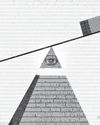CATEGORIES
Categories

DeepSeek Chief's Path to AI Disruptor
Some call him China's Sam Altman. Others compare him to Jim Simons, the pioneer of quantitative investing. Liang Wenfeng shares a lot with both innovators, and his impact might end up being as great.

Hawaii's Kilauea Volcano Is Belching Lava Again
One of the world's most active volcanoes is back in action.

DeepSeek Used Bevy of Tactics To Outfox U.S.
AI startup relied on inexperienced engineers, loophole in export controls

Telehealth Provider to Advertise Weight-Loss Drugs at Super Bowl
Telehealth provider Hims & Hers Health said it bought its first Super Bowl commercial, spending big to promote weight-loss treatments including the injections known as GLP-1s on a night better known for snacks, soda and beer.

DeepSeek Pressures Trump to Act on AI
Chinese advance fuels debate over export controls and testing standards

How Much Do Tariffs Matter?
Donald Trump's promise to impose tariffs on imports of foreign goods and services was a pillar of his campaign rhetoric.

On Netflix, Crime Without Punishment
Those with real-time memories of the events recounted in \"American Manhunt: O.J. Simpson\" might greet the four-part Netflix documentary with both a sigh and a \"Why?\" Given that 30 years have passed since Nicole Brown and Ronald Goldman were murdered, young people might ask \"Who?\" and \"What?\" And even if they know the outcome, many will still be wondering \"How?\"

Trump Presses Palestinian Relocation Plan
President is pushing Egypt and Jordan to take in refugees. Arab states are opposed.

Star Employees Escape Return-to-Work Mandates
High performers and those with unique skills get perks in new hybrid hierarchy

Get Ready for the Most Chaotic Night In the History of Champions League
SEVERAL YEARS AGO, the powers that oversee European soccer looked at their premier club competition and came to a stunning assessment.

Tycoon Seeks to Rebuild From L.A. Fires
Caruso casts himself as a shadow power broker, bumping up against mayor's pick

Beauty Through Noise
Benjamin Booker fuses well-wrought songs with deliberately distorted production

Have Minor Injuries? New Advice Says Hold The RICE
Say you went a little overboard at a friendly tennis match and now your right ankle is loudly complaining. What should you do to quickly get this minor injury behind you? A typical response is RICE-or rest, ice, compression and elevation-for the next two to three days.

Louis Vuitton Owner's Sales Top View
LVMH Moet Hennessy Louis Vuitton, the world's largest luxury group, posted fourth-quarter sales ahead of analysts' forecasts, but weak growth shows that the industry is struggling to turn the page after months of sluggish demand for luxury goods.

White House Tries to Flip Budget Script
Some advisers think they need to wrest parts of the process away from Congress

He's Made $350 Million. He's Now a Big Bargain.
Russell Westbrook is used to collecting triple-doubles and All-Star appearances. Now, he's rescuing the Denver Nuggets by collecting one of basketball's lowest paychecks.

Ballooning Costs Hit American Dream
A home that more than doubled in value since 2011 highlights affordability woe: 'We could never afford this house today'

Judge Pauses Trump Freeze On Aid After It Sparks Chaos
A judge temporarily blocked implementation of a sweeping White House effort to pause potentially trillions of dollars in federal grants, loans and other financial-assistance programs, a directive that created chaos as states struggled to access funding portals dealing with Medicaid, emergency aid and low-income education and nutrition services.

Google to Fight EU Antitrust Fine
Penalty in 2018 of $4.55 billion over Android is among largest in the bloc

Starbucks Profit, Store Sales Fall, But CEO Upbeat on Turnaround
Starbucks said business continued to slide at cafes and its profit fell in the most recent quarter, though executives saw progress in their efforts to make cafes more welcoming and less hectic.

Wall Street Reconsiders the Energy Needed to Power New Computing
The emergence of Chinese AI upstart DeepSeek has Wall Street reconsidering one of the hottest trades of the past year: providing the energy to power the artificial-intelligence boom.

New Believers Take Frugality Pledge
Instagram, TikTok and other social-media sites are usually overwhelmed by people showing off what they bought. This year, people are pivoting to something else: dis- playing how they're buying nothing.

Syrian City Seeks Return From Ruins
Wrecked by ISIS and war, Palmyra is at peace and hoping to restore antiquities

The Candy-Colored Shelves Infiltrating the Neutral Millennial Home
How the once-staid office furniture specialist USM turned shelves themselves into a work of art.

HOW Jacquemus BECAME THE MAIN CHARACTER OF FRENCH FASHION
Thanks to viral designs, destination runway shows, and a cozy relationship with fame, 35-year-old fashion-school dropout Simon Porte Jacquemus has grown his Mediterranean-inspired indie label into the buzziest brand in French fashion. Now, historic maisons and big tech are circling.
An Underground Icon Comes Out of the Vault
Vacheron's '70s legend, the 222, is back-this time in 2025-approved stainless steel.

THE OFF-THE-GRID ADVENTURES OF WAKTEN DOGGINS
Thirty years into his career, America's favorite character actor has taken a hard turn into leading-man territory—first on the Amazon megahit Fallout, and now in the wildly anticipated third season of The White Lotus. At home in the Hudson Valley, he explains how his latest role took him to the edge.

RIDELY SCOTT IS NOT LOOKING BACK
NOBODY IS MAKING BIG MOVIES WITH THE SPEED -OR THE CONFIDENCE- OF THE GLADIATOR AND ALIEN MASTERMIND, NOW 87. HE DOESN'T CARE WHO NOTICES.

NOVAK DJOKOVIC BEAT TENNIS mich Bane:
ON this morning in in abundant sunof the Bay of Kotor, wears a white Lacoste rubber sandals, and a blue tint.

EVERYONE PAYS THE FANUM TAX
He got big by streaming videos of his gaming exploits. He got huge (like, millions-of-fans huge) streaming videos of his offline life. Now, one of Gen Z's wildest success stories explains his plans to revolutionize the rest of the media landscape.